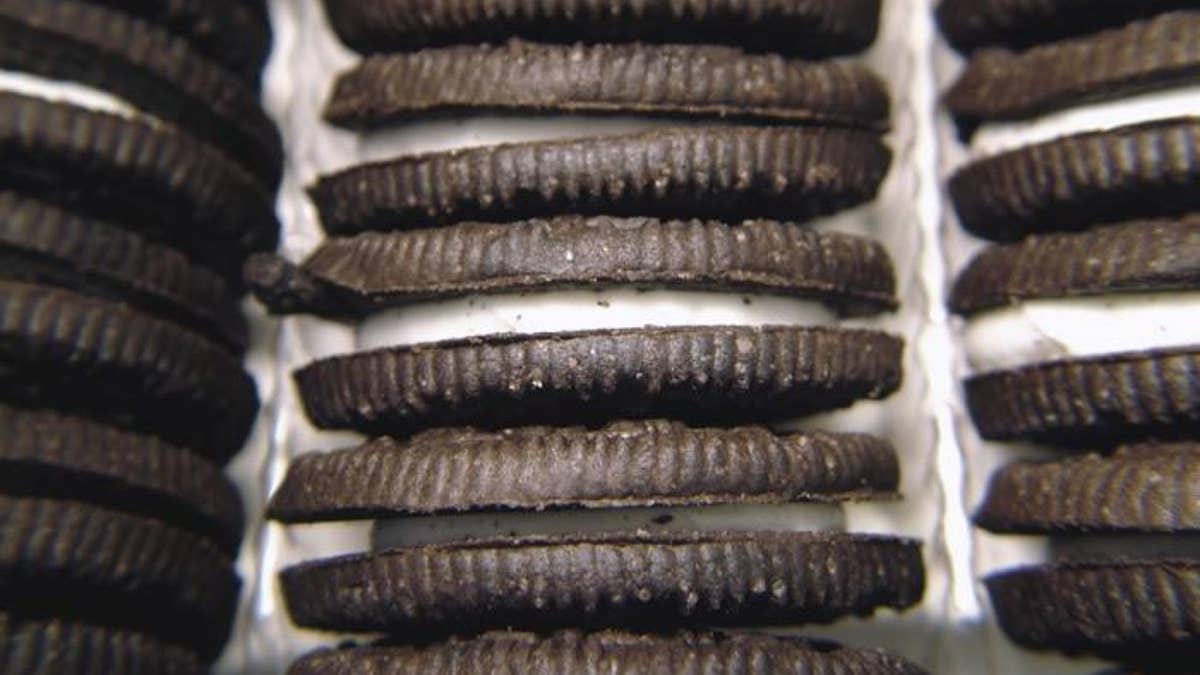
For anyone who’s ever felt the nearly irresistible lure of the cookie aisle, who’s ever gotten in the car at midnight in pursuit a cookie fix, or who’s ever polished off a box regardless of feeling full, this latest news may come as no surprise. Researchers at Connecticut College recently completed an experiment in which they found that Oreos delivered a pleasure rush to the brain on par with cocaine or morphine.
Now before you try to start a 12-step program for your fellow cookie “addicts,” know two things: one, this study was done on rats, not humans; and two, the study has not yet been presented at a scientific meeting or published in a peer-reviewed journal (so take a grain of salt with your sugar).
That said, the results are certainly interesting. Rats were put into a maze in which they got an Oreo on one side and a rice cake on the other. Another group of rats were put in a similar maze, except on one side they got a shot of cocaine or morphine and on the other a saline injection.
The cookie-eating rats and the drug-taking rats all showed a similar preference for hanging out on the side of the maze where they got the good stuff — even when they weren’t receiving any cookies. That’s not a shocker.
But more interestingly, the researchers also measured a protein called c-fos, a marker of nerve-cell activity, in the brain’s so-called “pleasure center.” And they found that, when the rats ate Oreos, there was more activity than when they consumed drugs.
“Our research supports the theory that high-fat/high-sugar foods stimulate the brain in the same way that drugs do,” Joseph Schroeder, associate professor of psychology and director of the behavioral neuroscience program at Connecticut College, said in a press release. “It may explain why some people can’t resist these foods despite the fact that they know they are bad for them.”
We would like to point out that Oreos have been on the market since 1912, and the government hasn’t yet felt the need to outlaw them due to any reckless or potentially life-threatening behavior on the part of cookie eaters. So we think it’s safe to say that cookies are not an “addiction” in a classic sense as these other drugs.
However, there is growing evidence that some foods can have an impact on the pleasure centers of brain in a way that looks a lot like addictive drugs. For example, one study found that obese men were hungrier and had more activity in the brain’s center for reward and cravings when they drank a milkshake with high-glycemic index carbs (those found in fast foods) than an identical shake (in terms of taste and calories) with low-glycemic carbs.
And others have found that rats fed a high fat, high calorie diet undergo brain changes and show compulsive feeding behavior, which in rats, means they continue to eat it in the face of painful shocks.
So keep it in mind. If you consider how much cheaper, easily accessible and socially acceptable cookies are versus drugs, well, it’s no wonder you sometimes feel powerless to resist temptation.
